![]()
![]()
![]()
Use LEFT and RIGHT arrow keys to navigate between flashcards;
Use UP and DOWN arrow keys to flip the card;
H to show hint;
A reads text to speech;
16 Cards in this Set
- Front
- Back

Law
|
is powerful is important is interesting |
|
|
Precedent |
Judges of all courts below the Supreme Courts will refer to previous cases to rule on present cases. |
|
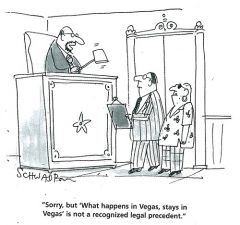
Stare Decisis |
The principle that precedent is blinding on later cases. |
|
|
The sources of contemporary law |
- U.S. Constitution - Statutes - Common Law - Court Orders - Administrative Law |
|

U.S. Constitution |
It establishes a system of checks and balances under the law: 1) Legislative branch 2) Executive branch 3) Judicial power |
|
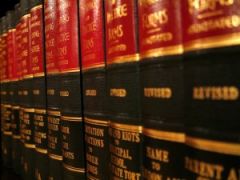
Statutes |
Laws created by Federal and State governments. However, State statutes must not conflict with Federal statutes. |
|
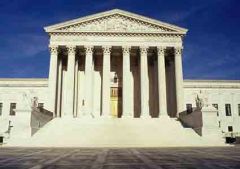
Common Law |
Earlier cases decides by the courts. |
|
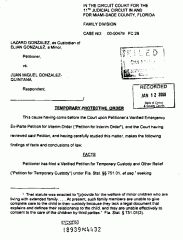
Court Orders |
Courts may issue rulings such as injunctions to provide an equitable remedy. |
|

Administrative Law |
Interpretation of statutes and further regulations created by agencies. |
|

Treaties |
The president may make treaties or agreements with foreign nations, but these treaties must be ratified by 2/3 vote of the U.S. Senate. |
|
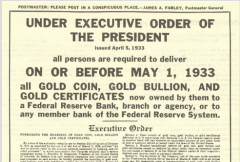
Executive Orders |
The president may issue executive orders to help officers and agencies of the executive branch manage the operations within the federal government itself. |
|

Criminal Law |
Government prosecutes accused |
|

Civil Law |
It regulates rights and duties of parties. |
|
|
Legal Positivism |
Decision stand, regardless of morality |
|
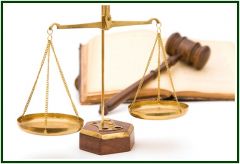
Natural Law |
Law must have a good moral basis. |
|
|
Legal Realism |
It enforces determine if the law is applied in a fair and consistent way. |

